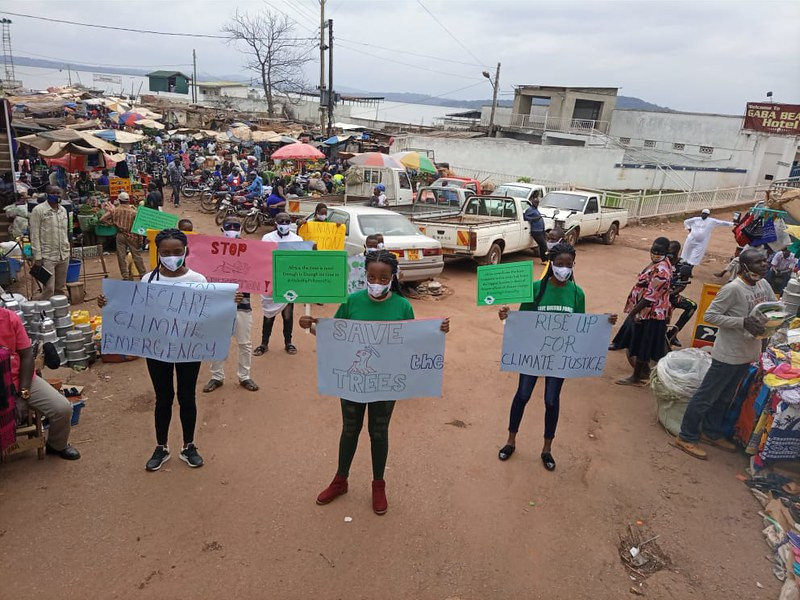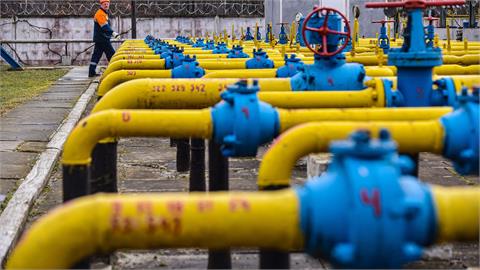by Sara Chander* At a time when climate negotiations are shaped by concerns about the disparity between post-industrial countries in the Global North and emerging economies in the Global South, the United Nations COP27 in Sharm El-Sheikh, starting this weekend, will finally address compensation for nations and communities negatively impacted by climate change
From unprecedented heatwaves across the world, torrential rains and severe flooding in Pakistan affecting millions of people, there is no denying that climate change is a major threat to racialised and marginalised communities across the world. These communities are often located in polluted environments that have a negative impact on their wellbeing.
Moreover, the Global South is disproportionately experiencing the impact of rising temperatures fuelling environmental degradation, natural disasters, weather extremes, food and water insecurity, economic disruption and conflict.
For too long, the link between the disproportionate impact of environmental destruction, colonialism and economic exploitation, have been ignored by governments in Europe and the rest of the global North.
On Sunday (6 November), Egypt will host the 27th COP summit, building on previous ambitions.
For the first time, the EU is facing pressure to soften its resistance to compensate the world's poorest nations for the loss and damage created by floods, rising seas and other impacts fuelled by the climate crisis.
Launched just ahead of this discussion, the Equinox Initiative for Racial Justice and other organisations call on European leaders to address the ongoing impact of colonialism and exploitation through the "loss and damages" approach.
Here are five ways the EU can compensate communities and nations affected by climate change.
First, take historical responsibility for the CO2 emissions in the atmosphere. One commonality shared by many former colonies excessively impacted by climate change is a relatively small carbon footprint. European countries are historically responsible for 22 percent of global CO2 emissions. Yet, in contrast, the historical contribution from African countries, many of whom were former colonies, are merely three percent combined.
Loss and damages are not theoretical or future problems, but a reality that impacts racialised and marginalised communities across the world, particularly in the Global South.
The past is not in the past
Second, acknowledge the colonial exploitation of countries. European colonialism refers to the act of exploiting land and resources on which others are already dependent. Resource extraction such as oil and gas results in extinction, deforestation and pollution. Take the Niger Delta, one of the most polluted places on earth due to the negligence of British company Shell. It is estimated over 17.5 million litres of oil have been spilled there, killing entire ecosystems, uprooting families and causing irreversible damage.
The Global North has also used the Global South as a place to dispose of its waste that is not wanted. Such actions disrupted local communities living on the lands as well as devastated ecosystems.
For the first time, a recent 2022 report from the UN Intergovernmental Panel on Climate Change (IPCC), listed colonialism as a driver of the climate crisis and an ongoing issue that is exacerbating communities' vulnerability to it.
This emphasises the urgency for Global North governments to take historical responsibility to account for such imbalance. They have a duty to allocate the funding that comes from excess profits of gas and oil corporations responsible for climate change to those nations that once were and still are exploited.
Third, give compensation for more than loss of lives, infrastructure and land.
Individuals, communities and nations affected directly by climate change have suffered in unimaginable ways. Many have lost lives or loved ones, homes and jobs as well as land.
Those that have "survived" must continue on through a disrupted different way of life: for many, this means displacement, family separation and shattered cultural practices. Any financial decision relating to loss and damage needs to take this into account.
Fourth — recognise that 'adaptation' has limits. Nations and communities have developed adaptation solutions and implemented action to respond to the current impacts of climate change as well as prepare for future impacts. However, adaptation has its limits and no amount of resilience can hinder the material effects of climate change.
The EU should institute a separate financial mechanism addressing loss and damages in addition to existing adaptation and mitigation commitments.
143 million people with nowhere to go
Fifth, and finally, facilitate the inevitable migration. The accelerating trend of global displacement related to climate impacts is increasing cross-border movements, particularly where climate change interacts with conflict and violence.
The United Nations High Commissioner for Refugees (UNHCR) reports that in 2019, 24.9 million people were displaced in 140 countries by weather-related hazards, and that without sufficient action the number will only continue to grow.
It is expected that over the next 30 years, 143 million people will be uprooted by rising seas, drought, searing temperatures and other climate catastrophes, according to IPCC's 2022 report.
Migration is inevitable as the world heats up. The EU needs to implement a migration policy that prioritises safe passage for all people, including those forcibly displaced due to environmental damages, and save lives by shortening complicated asylum procedures.
Understanding the links between racial justice and environmental harm is essential for the EU to implement effective commitments. These must be reflected in their policies related to the climate crisis.
It is about time that communities and nations directly affected by climate change are compensated by the world's biggest emitters of greenhouse gases. The European Union (EU) should lead by example to make this happen and commit adequate loss and damage financing at COP27.
*Sara Chander is a co-founder of the Equinox Initiative for Racial Justice — a people of colour-led advocacy initiative working toward justice for people in Europe.
(euobserver.com, November 4, 2022)




